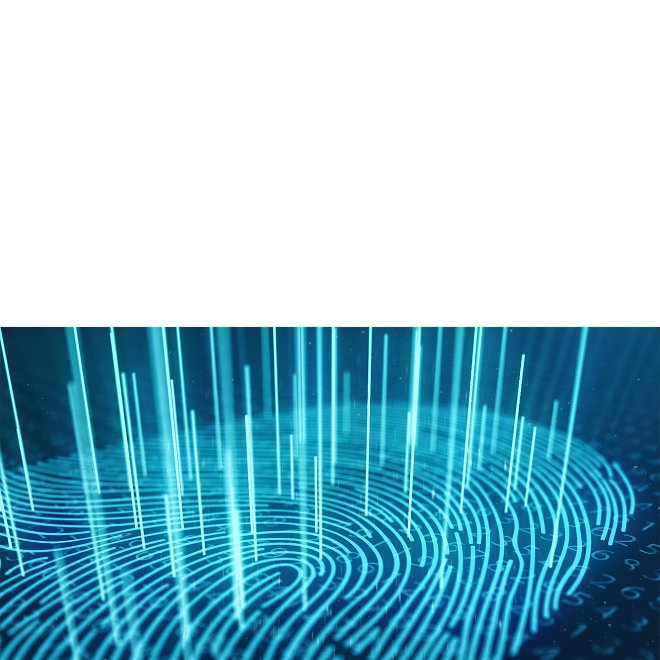
Master Digital Forensics (English program)
- Master
- Engelstalig
- 2 jaar
- Master of Science
About the Master's program
Our digitally transformed world creates many new opportunities for misconduct. Criminals are rapidly shifting their field of activity to the digital domain providing a growing need for trained forensic IT specialists who can act quickly and effectively in digital forensic investigations. The Master Digital Forensics is a two-year part-time program geared towards professionals with a Bachelor’s or Master’s degree working in the digital forensic field, looking to widen their knowledge and develop their technical skills.
If you have a Bachelor’s degree ICT with specialization Forensic IT you are eligible to enroll. If you have a Bachelor’s degree in Computer Science or Digital Forensics, often there is the option to follow a pre-master program to meet the required prerequisites. The pre-master program offers 9 different modules. Depending on your educational knowledge and professional background there is the option to follow one or more of the pre-master modules to ensure you obtain the required knowledge to be admitted to the Master’s program Digital Forensics.
Matching the Master Digital Forensics
The Master Digital Forensics is a two-year part-time program geared towards professionals with a Bachelor’s or Master’s degree working in the digital forensic field looking to widen their knowledge and developing their technical skills.
The Master of Digital Forensics is specifically tailored to professionals who would like to:
- advance their technical skills in modern day digital forensics and investigations.
- acquire the necessary management and communication skills required to perform forensic investigations.
- be prepared for the technology paradigm shift towards IOT forensics.
- learn how to use analytics, AI, and ML methodologies and apply forensic frameworks to control huge investigations.
- learn to develop state of the art forensic tools.
Get to know the Master Digital Forensics
Learn everything about the part-time Master Digital Forensics during our online information session on 14 May 2024 via Microsoft Teams. During this session we will provide you with more information about the courses, admission requirements and the intake process and you will have the opportunity to ask any questions you might have about the Master’s program.
Do you have a specific question? Please contact us via [email protected].
You are also welcome to attend the open house of the Bachelor program ICT to meet the teaching staff of the Forensic IT department.
Study Program
The Master of Digital Forensics is a two-year part-time program of 60 ECTS. Both year 1 and year 2 have been divided into two semesters with each three modules per semester. The entire program consists of nine modules and is completed with a Master thesis.
Digital Forensic Principles
This course provides a solid basis for developing the fundamentals of Digital Forensics. The course is a mix of investigation methodologies, basic forensic skills and technology. In addition to theory and assignments, this module also encompasses practical components.
Computer Forensics
This course focuses on digital forensic artifacts that can be found on computers. In this course the principles of computers and their operating systems will be covered. With this knowledge you will research various artifacts, the influence of the environment on these artifacts and even anti-forensics. You will research traces which can be left behind by applications, virtual computing, and/or cloud storage. You learn to apply various digital forensic processes and techniques, for identifying, acquiring, analysing, and reporting various traces.
Research Methodology
Every day, forensic research plays a pivotal role in gathering crucial evidence to be presented in the courtroom. Because this evidence serves as the key to unraveling the truth and ensuring justice prevails, scientific research skills are essential for every forensic investigator.
In the module Research methodology you will learn the essential research skills. This means that you will develop the expertise to design a research project and to transform your ideas into a well-structured research proposal. You'll receive guidance throughout your research project and engage in thoughtful discussions about the steps and decisions made along the way. Also, you will learn to critically assess the sources you rely on. By the end of the module, you can systematically design and execute scientifically sound research projects and effectively communicate your findings to various audiences.
Law, Ethics & Governance
When the expertise of a digital forensics expert is called upon digital skills are a necessary requirement. They are however not sufficient. All digital forensic work exists in a context that needs to be understood in order to work effectively. In this module you will gain a basic understanding of the legal and ethical context of digital forensic work and how it is influenced by that context. This module will require you not only to consider the most efficient way to go about your work from a technical perspective, but also look at legal and ethical consequences of the choices you make.
Data Analytics
In this comprehensive module, you'll embark on a journey into the world of data analysis, where you will acquire essential skills for handling data in forensic scenarios. Our course takes you through the fundamental elements of data analysis, from data collection to visualization, and demonstrates how these skills can be applied effectively in forensic contexts. By the end of this module, you will have not only acquired the essential knowledge and skills to work in a data analysis team, but also you have completed a small data project to showcase your practical experience. Join us today and unlock the potential of data analysis in the world of forensic applications.
Mobile Forensics
Mobile forensics is a subgroup within digital forensic investigation that deals with collecting, analyzing and reporting evidence from mobile devices such as smartphones, tablets and smartwatches. As people rely on mobile devices for most of their data usage, these devices contain a large amount of evidence that can be useful in investigations.
Mobile devices can provide a wide range of useful data, from call logs and web search history to location data and physical user activity showing where the owner of the device was at a given time and doing. This module looks at the file systems and operating systems used by mobile devices, and how to extract digital evidence from them. It also looks at techniques to analyse, interpret, and validate such data when the meaning of data is not clear.
Practical Laboratory Project
The aim of the practical project is to build or examine (forensic) devices.
Network and IOT Forensics
This course examines digital forensic techniques in the context of networks and the internet (b.e. Internet of Things). You will learn about the identification of artifacts and collecting and analysing evidence using appropriate technologies. At the end of the course you will be able to advise about the acquisition and use of this information.
Malware Analysis
In this course you will learn to research different types of malware in a forensic way.
Master Thesis
The purpose of the master thesis is to introduce and describe the results of a research project conducted on a topic of your choice related to Digital Forensics or E-Discovery. It should be written according to academic standards consistent with the relevant international literature in the field. The thesis is written in English and should provide clear evidence that you are familiar with the current scientific literature on the chosen topic, and can relate the research to existing work.
The master has an average study load of 16 – 20 hours per week. This includes one dedicated day per week for on-campus lectures and guidance. Our education is offered in a hybrid format, providing the option to follow these lectures online.
The curriculum combines theory & practice. Participants are expected to carry out practical projects and assignments in their own workplace or at the Digital Forensics Lab at the Digital Forensics & E-Discovery lectorate based at the HSD-campus in the Hague.
Practical information
Facilities
You will be able to use the facilities of Leiden University of Applied Sciences when enrolled in the Master’s program. For example, you will have access to an extensive selection of professional literature and research results via the digital learning environment, including from the Leiden Centre for Applied Bioscience (LCAB) and the research group Digital Forensics & E-Discovery. You can also contact the Media Centre for additional professional literature and free access to various databases.
The Digital Forensics & E-Discovery lectorate has opened a laboratory on the campus of The Hague Security Delta (HSD) for digital forensic research with a focus on the Internet of Things (IoT). The Digital Forensics Lab has specialized equipment, knowledge and (digital forensics) software. Students can use this environment for research and carrying out practical assignments.
The information about the LCAB, research group Digital Forensics & E-discovery and the Media Centre of UAS Leiden is in Dutch.
Education and Examination Regulations (EER)
Pursuant to Article 7.13 of the Higher Education and Research Act (WHW), each program or a group of programs is obliged to draw up Teaching and Examination Regulations (EER) for their programme(s).
An EER contains the main issues relating to education and examinations and thus forms the basic document for students and lecturers. The following topics are discussed in the EER: the content of the program and the multiple associated exams, the final attainment levels, the number and sequence of the exams, the times at which they can be taken, the interval between the exams.
More about
Read more about the requirements, enrollment and costs of the Master Digital Forensics, and the information for employers.


